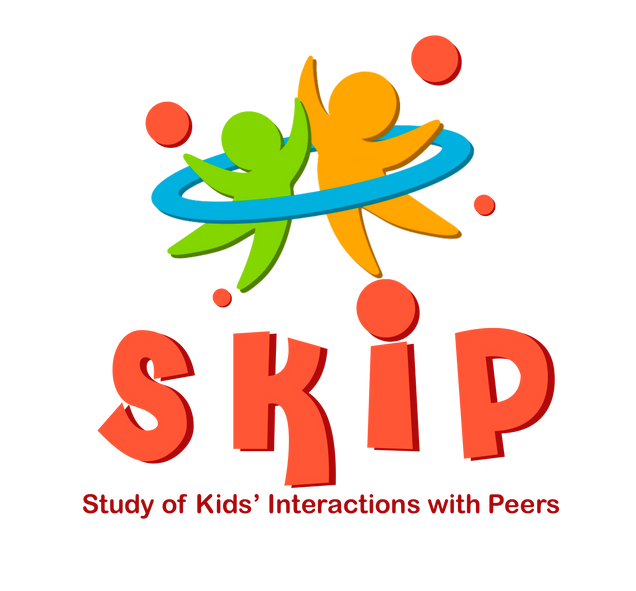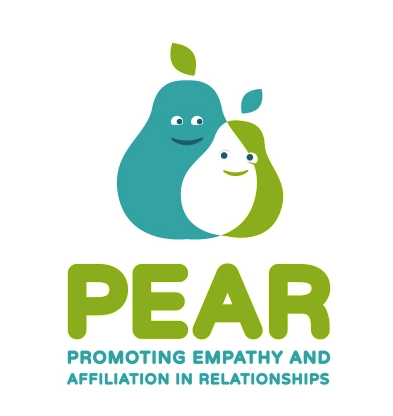Research Studies
To learn more about how to participate in any of our ongoing studies, just click the name of the study you are interested in!
Ongoing Studies in the BASE Lab
The Promoting Empathy and Affiliation in Relationships Study
To learn more about this study, check out www.thepearstudy.com.
The PEAR study is an NIMH-funded study (R01MH125904) designed to better understand the mechanisms which promote positive and affiliative relationships between preschoolers and their parents. This study will help us better understand how early relationships influence children’s social-emotional development, including children’s emotions, empathy, and prosociality. We’re also interested in understanding the consequences of when these developmental processes go awry, including the potential risk for the emergence of callous-unemotional traits. Key constucts will be assessed across multiple levels of analysis, including parent-report and multiple new computer and observational tasks that allow simultaneous measurement of attentional (i.e., eye-tracking) and physiological (i.e., respiratory sinus arrythmia) processes. Findings from this study will also identify clinically useful biomarkers and behavioral indicators of risk for psychopathology and identify and validate new targets for treatment development.
Leveraging Machine Learning Techniques to Elucidate Risk for Callous-Unemotional Traits
The BASE Lab received funding from the NIMH (R21MH126162) to use existing data from the Durham Child Health and Development Study (DCHDS) and the Family LIfe Project (FLP), to (1) implement a newly-developed behavioral coding paradigm that assesses affiliation (e.g., verbal and physical displays of affection) and social communication (e.g., eye-gaze, engagement, synchrony) during parent-child interactions; (2) Employ automated techniques to identify objective linguistic markers of these domains; and (3) Use machine learning (ML) approaches to identify the domain-specific and age-specific precision risk factors that best predict callous-unemotional traits across early childhood and middle childhood.

Brain and Early Experience Study
The BASE Lab is working with researchers at the University of North Carolina at Chapel Hill, Michigan State University, and the University of Wisconsin on an NIMH-funded study (R01MH122526) which aims to 1) examine the influences of psychosocial stress on children’s microbiome and brain development across the first five years of life and 2) test whether and how these gut-brain pathways mediate links between psychosocial stress and risk for anxiety. This study follows a sample of families who were initially recruited into an NICHD-funded study examining how early experiences impact brain development and children’s executive functioning.
The Preschool Shyness Study
The Preschool Shyness Study, which is funded by the National Institute of Mental Health-funded study examining two early intervention programs for shy children ages 45 to 64 months (3.75 years – 5 years 4 months) and their parents. Research has found that both programs are effective in helping children feel less nervous in social situations. Dr. Wagner and the BASE Lab have received funding from NIMH (R03MH123762) to examine biobehavioral predictors of treatment response. This funding will also support the examination of parents’ neurophysiological regulation and perceptions of social threat, and how these mechanisms influence parenting behaviors, particularly in the context of intervention.
Ongoing Collaborative Studies

Predicting and Optimizing Language Outcomes (POLO)
The BASE Lab is collaborating with the Center for Autism Research Excellence at BU on a study funded by the National Institute on Deafness and Other Communication Disorders (1P50DC018006; MPI Tager-Flusberg & Kasari) to understand the difference between children with Autism Spectrum Disorders who start with language delays but make gains during early school years and children with ASD who remain minimally verbal. We are recruiting children ages 3.5 to 7 years with or without Autism Spectrum Disorder OR participants from previous CARE studies (any age) with ASD. Please go here for more information!
Learning, Emotion, and Play in Schools
The Learning, Emotion, and Play in Schools (LEAPS) project focuses on exploration of the behavioral and physiological correlates of both executive functioning and emotion regulation (two forms of self-regulation that are critical for academic success) as they differentially influence functioning in preschool. This study allows for an examination of the interplay between children’s early regulatory abilities and their interactions with parents and teachers, as well as linkages to children’s successful self-regulation and performance in the pre-K classroom. The BASE Lab is working with LEAPS directors Cathi Propper and Jennifer Coffman to develop innovative approaches to modeling children’s psychophysiological regulation across the school day.

Family Life Project
The Family Life Project (FLP) began as a five year collaboration between The University of North Carolina at Chapel Hill and Penn State University, funded by the National Institutes of Health and the National Institute of Child Health and Human Development. The focus of this large longitudinal study is on children and families who live in rural areas. The overarching goal of the project is to develop an understanding of the unique ways community, employment, family economic resources, family contexts, parent-child relationships and individual differences influence development and competencies in children. The BASE Lab continues to collaborate with the FLP team to investigate important questions about rural poverty and child development.
Completed Studies
 Study of Kids’ Interactions with Peers
Study of Kids’ Interactions with Peers
The SKIP study is a Boston University funded study (Clara Mayo Award) designed to explore how children engage with same-aged peers. We have designed this study to better understand how children make social decisions in social contexts of play, collaboration, and fairness. Please go here for more information!

Coronavirus Outbreak Parenting and Emotions Study (COPES)
The BASE Lab is collaborating with researchers from 12 different countries around the world on a study to examine how the COVID-19 pandemic is impacting families. Once a month for six months, parents complete an online survey about their child’s emotions and behaviors and how the pandemic is impacting the lives of themselves and their family members. Recruitment has closed for this study.
Family and Child Emotion Socialization Study (FACES)
FACES uses cutting edge methodology (e.g., eye-tracking, psychophysiology) to explore the key components of empathy, guilt, and emotion recognition and understanding, as well as the underlying regulatory mechanisms implicated in their emergence. This study seeks to clarify how parents help to guide the development of the affective and interpersonal skills of their children, and how these processes vary across contexts.
Family and Child Emotion Socialization Study, Online Version (E-FACES)
This study examines emotional development by exploring how children ages 3 to 10 experience different emotions and how they communicate them with their parents. We ask parents to complete an online survey, which only takes 20-30 minutes.
 Biology and Social Interactions Study (BASIS)
Biology and Social Interactions Study (BASIS)
The Biology and Social Interactions Study (BASIS) examines emotional and social processes in a young adult population. Several methods including eye-tracking and psychophysiology will be used to explore how young adults process complex personal and interpersonal experiences and emotions such as empathy, affiliation, stress, and reward.
Durham Child Health and Development Study
The Durham Child Health and Development Study (DCHDS) is supported by the National Science Foundation. Beginning in August of 2002, approximately 200 families from all walks of life enrolled in this study when their infants were 3-months-old and they were adjusting to the birth of their new child. Before the age of three, the study saw infants and their families at 3, 6, 12, 18, 24, 30, and 36 months of age. With the help of these families, who have shared their thoughts and experiences about parenthood and the many milestones that their infants passed as they transitioned into toddlerhood, the researchers working on this study have begun to learn more about the important contributions to their social, emotional, and cognitive development. The BASE Lab continues to work with the DCHD team to examine early risk factors for child psychopathology.
Prenatal Experience and Pediatric Sleep Study (PEAPS)
The Prenatal Experience and Pediatric Sleep Study, led by Dr. Cathi Propper, investigates the influences of prenatal exposure to various substances on infants’ regulatory capacities and the extent to which sleep mediates these relationships. In addition working with Dr. Propper on PEAPS, Dr. Wagner secured additional research funding (NIH-Cancer Institute and FDA Pilot Grant) to recruit a subsample of expecting mothers who use electronic cigarettes during pregnancy. The extent to which electronic cigarettes are viewed as a safe alternative to tobacco cigarettes by women during pregnancy has important implications for policy and practice. Nested within the larger PEAPS study, this work has provided important insight into the prevalence of electronic cigarette use among pregnant women, the ways in which electronic cigarettes are perceived by expecting mothers, and the similarities and differences in prenatal exposure to nicotine between tobacco and electronic cigarettes.




